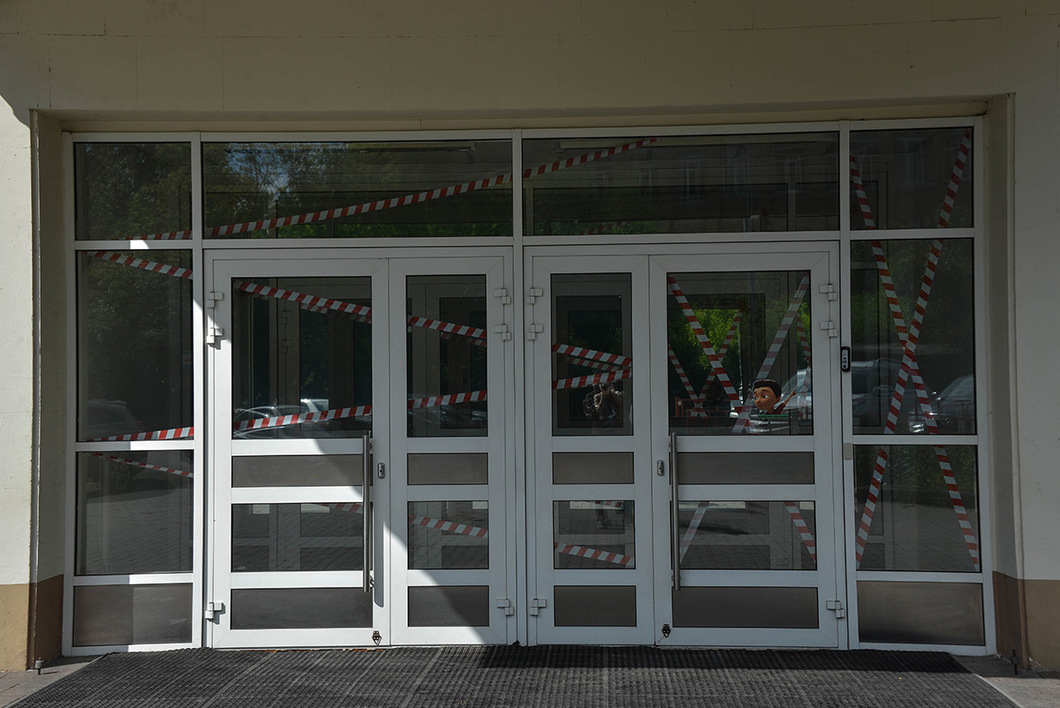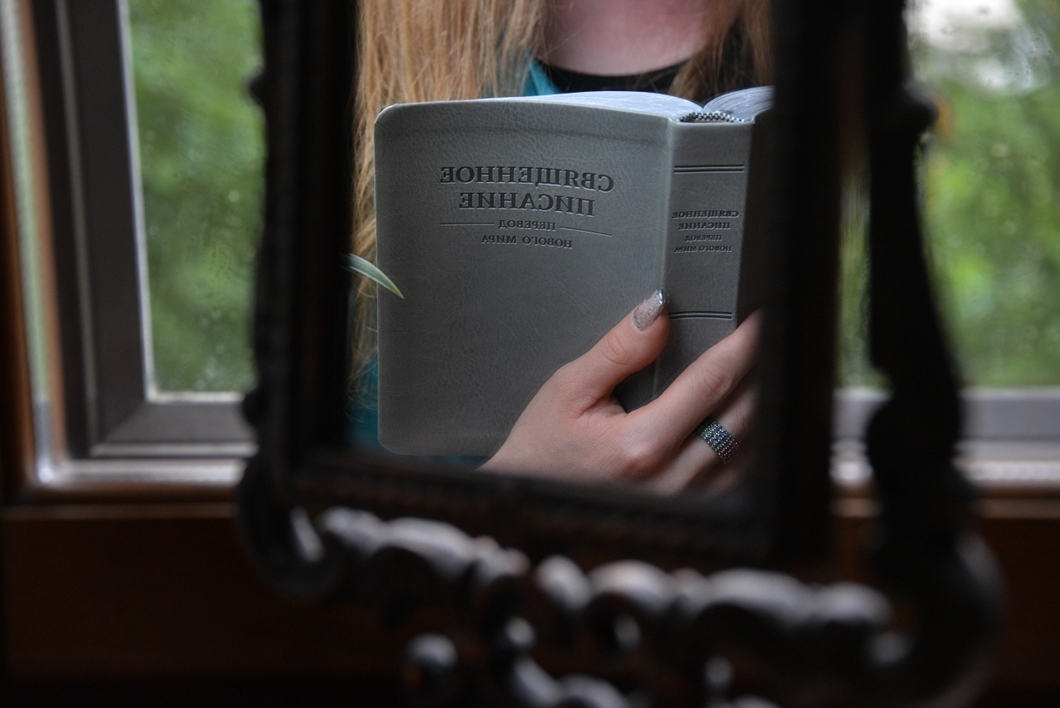
On 20 April the Russian Supreme Court found the organization of Jehovah's Witnesses to be extremist and prohibited its activity in our country. (An appeal of this decision was filed and it has not taken legal effect.) The Ministry of Justice discovered "violations of the charter goals of the organization and of current legislation in the RF," in particular, violation of the federal law "On combating extremist activity." The religious literature of the Witnesses (brochures, booklets, magazines Watchtower" and "Awake," etc.) have also been found to be extremist and their distribution has been prohibited. The property of the organization and of 396 Kingdom Halls (including the enormous complex of the headquarters of the Russian affiliate, "Administrative Center," in St. Petersburg) by the decision of the court will go to the benefit of the government.
On Monday, 17 July, the Supreme Court will consider an appellate complaint of the Jehovah's Witnesses.
And on 13 July, the Levada Center published a survey according to which 79% of Russians support the ban on Jehovah's Witnesses in Russia.
* * * * *
"For Easter, Mama always colored eggs, but why she did this, she could not explain." Marina is setting the table; she is preparing for the arrival of fellow believers. "I rummaged through a slew of literature, I studied up on the Law of God, but I did not find anything about eggs there. I tried to find a Bible to read. In the early 90s, the father of one of my pupils worked in a publishing house and he gave it to me. I began to read—nothing about eggs, but there were prophecies and a bunch of names and I did not understand anything at all. And then Witnesses knocked at our door. They suggested studying the Bible. My husband and I agreed. And then even Katya became interested."

Marina's husband, Katya's father, died several years ago. "I used to be afraid of the dead with a beastly fear. When my grandmother died, I was not able to go to her grave. I was 30 years old but I believed that she would jump out and grab me," Marina describes while her daughter laughs. "Now this is funny. After all the Bible says that the dead are in an unconscious condition and they cannot help nor harm. So that when my husband died there was not such a pain of loss that many talk about. And now there isn't. I have the feeling that he has simply gone off and some day he will return."
After the closing of the Kingdom Halls, mass meetings of believers gave way to house gatherings with tea. They converse and discuss the Bible. Many continue to witness on the street. "Once they took us to the Arbat department of internal affairs and the major began saying: 'Go to the Garden Ring; why are you walking in my precinct?' I showed him the verse from the Bible where Jesus says that it is necessary to go and proclaim. The major responded to me with understanding: 'Well, you have a task.' After this we even began communicating with them. Liuda once brought them magazines and they laid them out in the police department. Perhaps they were read, or not, but they leafed through them willingly," Evgeny recalls.
By order of the court, the Witnesses must transfer their buildings to the state. The principal Moscow Kingdom Hall is located on Mikhalkov Street. By their own hands the Witnesses transformed it from a palace of culture to a building for services. They laid tiles themselves, painted the walls, upholstered the seating, and hired an electrician.
"I was a happy young man, but there was no sense of fulfillment. There was a feeling that everything was somehow incomplete. You feel it especially in the army. After meeting Liudmila, a real life of 'pilgrims' began. We traveled about the country and we witnessed. We even lived in Chechnya—that's where it was really hard."
Concerning the upcoming appeal of 17 July, Liudmila and Evgeny speak with hope: "Even if the decision is not changed, there still is the European court. We do not want to leave the country because of the ban. We love Russia. We love the Russian language. We love these people."
A photograph of her husband stands next to a computer in the living room. When Witnesses visit Marina it's as if he really is with them as before. "When I began studying the Bible, I read that a wife must submit to her husband. I thought: 'Pshaw!' I was brought up like the center of the universe." Katya adds: "That's Mama completely. Robust to the core!" "I had to break myself very much," Marina admits. "And I now greatly regret one thing—that I came to know the Bible very late. That way the first marriage could have been saved. This one was already the third. I was like—I don't like it, to hell with it. This one also would have gone to hell if it were not for the Witnesses."
Over tea and pizza the believers discuss the history of the organization. They recall Eleanor Roosevelt, who acted for the persecuted Witnesses, and they hope that on 17 July the judges will make a different decision. Katya does not believe in defeat: "If everything now happens thus, it means that it is necessary to God, and God has no losses. If it seems to you that he is losing, that means that he simply still hasn't given up."
"They have lived with me for eleven years now. I in one room and they in the other," Valya explains. She struggles to keep her feet, but she firmly rejects help. "I will make it myself. I am falling apart, but I will make it!"
"If it were not for Liuda, I would not be able to keep such cleanliness. She both keeps house and cooks every day. It is good for me with them," Valya comments on her fellow believers with warmth. As a former science worker, she speaks about the Bible as almost a scientific achievement. For her, everything there is logical and consistent. And it is also like a detective novel—truly fascinating reading for every day. After the ban on printed literature, Valentina again mastered the computer.
"My girlfriend now lives in New Zealand. She also is a Witness. There they are simply in shock from what has happened," Valya returns to 20 April. "They are supporting and praying and believing that justice will triumph."
"They called us extremists and in the minds of the majority of people we are equated with terrorists," Valentina's friend says.
"I have faced open aggression on religious grounds," Veronika describes. "A year ago, on 8 March, I was witnessing, going about apartments and inviting everybody to our holiday, the Evening of Memory of the Death of Jesus Christ (the only religious holiday that Witnesses observe—ed.). I was with my partner. While I was talking with a young man on the stairway, a drunk woman came out of the door across the way. She began to curse. I tried to leave then but she began cursing in God's name. I asked her to stop, but she kicked me on the rear, and she pushed me, and I flew down the stairway. She flew after me and grabbed me by the hair. My partner tried to call the police, but she did not make a connection in the entryway. She tried to call to apartments and asked for help, but everybody refused. And then the woman called to a guy: "I caught a sectarian. Come in, I have a gun under the icons in the cupboard."
My partner's husband came. He also separated us. Then the police took us to the precinct and there this woman wrote out a statement, that I broke into her apartment and wanted to rob her."
Veronika has survived this situation so far. It was then that she, for the first time, began to think about moving to another country. One other factor was the decision of the court in April. "It's scary to live in this country. Here a decent and law-abiding person can be placed in a different light and put in jail. It is one thing to be jailed for a crime; it is another when you are framed. And I have already experienced this myself. That woman then wrote something completely different in her statement."
For now, Veronika is only thinking about the possibility of moving. However some Witnesses even with tourist visas are now being refused by receiving countries. One married couple was not able to leave for the U.S.A. In an interview it was learned that they were going to America on the basis of religious convictions. Another was denied a Schengen visa when they tried to exit for a congress of Witnesses in Finland.
"Before the wedding, baptized Witnesses may not have intimate relations," Yura explains. "That is, take a walk, go on dates, even kiss, but without physical intimacy."
Sasha has her own group "Ameli na meli." They often perform on the summer terasses of popular Moscow cafes. Yura is a journalist. He found Sasha on social networks and he followed her productions for a long time.
"I thought that since she is a singer then she obviously does not observe all biblical rules," Sasha's husband jokes. "I was mistaken."
The young people learned about the court's 20 April decision from the Internet. "It was the same as if you heard news about a terrible criminal and you would stand and your heart stops when you hear about him—and then there appears on the TV screen your photograph," Sasha says.
Sasha and Yury have been together since 2012 and they married in 2014. While living together for two creative people, each with their own cockroaches, in their opinion it helps to study the Bible. In the evenings they read. There are two Bibles on their bookshelf, beside Bradbury and Strugatsky.
Evgeny: "In Russia now the image of Witnesses is being demonized. Previously they also dreamed up for us many different names: enemy of the people, sectarian, spy, and now the fashionable word is 'extremist.'"
"Witnesses do not bear arms nor participate in wars and rallies. We will struggle by purely legal methods," Evgeny explains, and he adds: "I do not understand why they are banning us. But it seems to me that those who are banning also do not know the answer."
"I once read that Jesus said: 'Go and speak about me,' and that upset me so much," Evgeny jokes. "Well I did not want to go up to anybody and converse with anybody. That was hard for me, but now it is a given." (tr. by PDS, posted 13 July 2017)
No comments:
Post a Comment